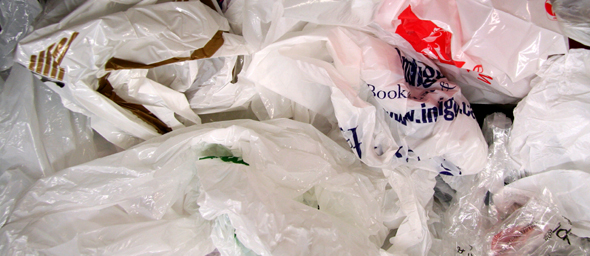
Ever since Delhi began banning plastic bags, shopping has become a nightmare. I invariably forget to carry cloth bags before I step out to shop. The result: I bring home my grocery in half-torn paper bags and even end up dropping a few things along the way.
But as someone who cares for the environment, I know it’s a good move on the part of the Delhi government. Each year, millions of discarded plastic bags end up strewn around as litter. Regular plastic bags can take over 400 years to degrade. The problem, though, is in a country such as India, these bags get eaten up by stray cattle and wild animals. They also release toxic chemicals into the soil, lakes, rivers, and oceans.
However, paper bags are not a viable solution either. Most paper used comes from tree pulp. It takes approximately four times as much energy to manufacture a paper bag as opposed to a plastic bag. This, of course, leads to more air and water pollution.
Now, a Delhi-based NGO (non-governmental organization), the Society to Create Awareness Towards Life and Environment (SCALE), has found an alternative to plastic bags in ECOgrade Bags. These are created by GXT Green, a division of Global Exchange Technologies, which is headquartered in Massachusetts, United States.
“ECOgrade degradable bags are composed of about 50 percent organic and naturally occurring materials and degrade in approximately 240 days,” Arun Sinha, honorary secretary general at SCALE, told me over the phone recently. Sinha was formerly the managing director of Acer India. In 2002, he gave up his high-profile corporate job to provide quality healthcare and education to the under-privileged sections of the Indian society and set up SCALE along with a few other professionals.
He added ECOgrade bags are both environment- and user-friendly given they start degrading within 40 days from sunlight exposure, and will complete the degradation in approximately eight months. The bags are also certified by the Central Institute of Plastics and Technology (CIPET), headquartered in Chennai.
Delhi implemented a blanket ban on plastic bags in 2009. But till today, consumers are still using plastic bags. Often, both merchants and consumers have no real alternatives before them.
“We hope states like Delhi and Himachal Pradesh will find a solution in ECOgrade bags,” Sinha said. “We are also hopeful GXT Green would set up manufacturing facilities in India so that Indian consumers and merchants can find an alternative to the menace of plastic bags.”
Source: http://www.zdnet.com/in/ngo-seeks-to-cure-indias-plastic-dependency-7000016091/









